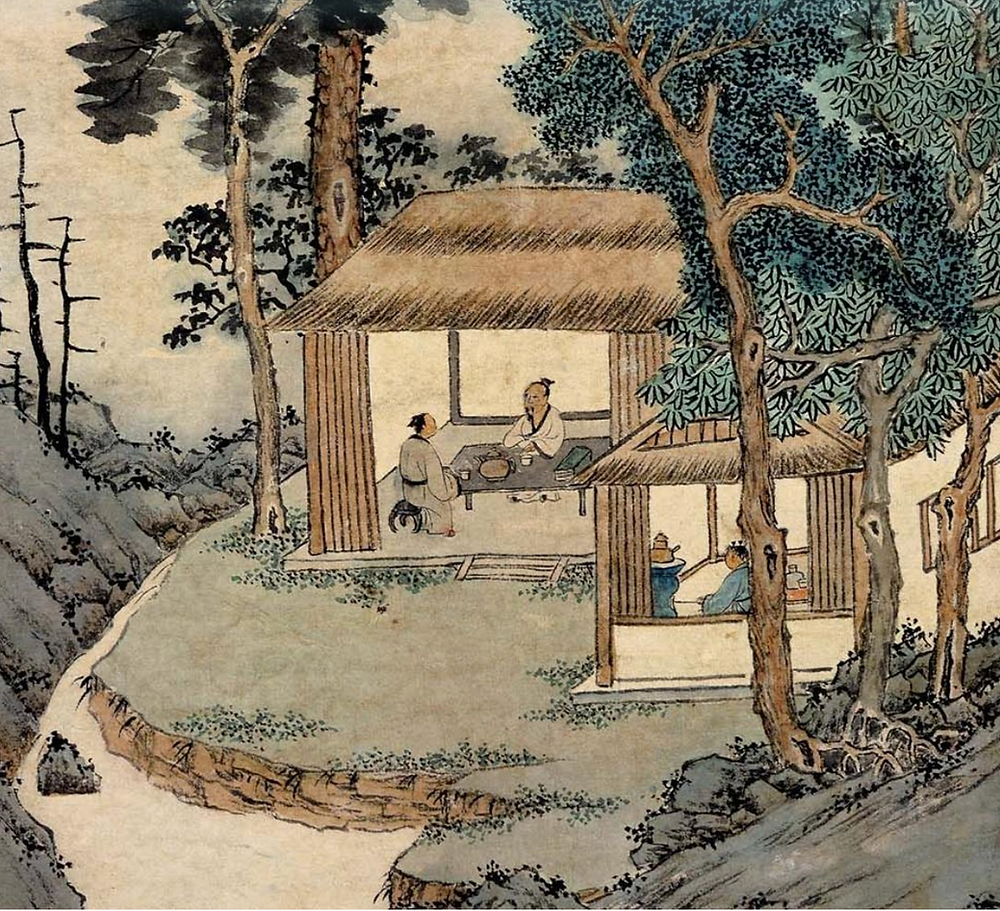Making New Season Tea by a Spring Stream
- Poetry of Su Shi
《汲江煎茶》This tea poem was composed during spring in 1100 at Hainan Island, “the end of the world” as often called by ancient Chinese writers. The new season tea could be sourced from local friends or students. Although he was banished as far as his political opponent could find on the Song map, he was able to find peace in his mind with his surrounding world, wild and desolate as it could be. Tea culture has been woven into the tapestry of Chinese culture like silk that defines Chinese fine costumes. With only a few lines Su Shi drew a motion picture of tea-making in the Song Dynasty where we immediately sense a big difference from what we do today.

The best tea is boiled over a fresh fire
With water fetched from a running stream.
To the end of the fishing points on rocks
I try to source clear water from the deep.
The dipper stole the moon into my urn,
A stream share to the kettle the scoop feeds.
Soon it boils to a cream top of snowy foam,
Tea grounds rolling up an aroma rich and sweet.
Then I pour a thin stream of spring to my bowl,-
A soothing sound like breeze down the pineries.
The ‘three-bowl limit’ cannot be My cup of tea
for the long night at this town, barren and bleak.
活水还须活火烹,自临钓石取深清。
大瓢贮月归春瓮,小杓分江入夜瓶。
雪乳已翻煎处脚,松风忽作泻时声。
枯肠未易禁三碗,坐听荒城长短更。
- Why Chinese poems is so special?
- The most distinctive features of Chinese poetry are: concision- many poems are only four lines, and few are much longer than eight; ambiguity- number, tense and parts of speech are often undetermined, creating particularly rich interpretative possibilities; and structure- most poems follow quite strict formal patterns which have beauty in themselves as well as highlighting meaningful contrasts.
- How to read a Chinese poem?
- Like an English poem, but more so. Everything is there for a reason, so try to find that reason. Think about all the possible connotations, and be aware of the different possibilities of number and tense. Look for contrasts: within lines, between the lines of each couplet and between successive couplets. Above all, don't worry about what the poet meant- find your meaning.
- A Song of the Spring Palace
- Poems on Army Life IV
- Poems on Army Life V
- West Palace, Autumn
- Hearing the River-Song
- The Lotus Gatherers